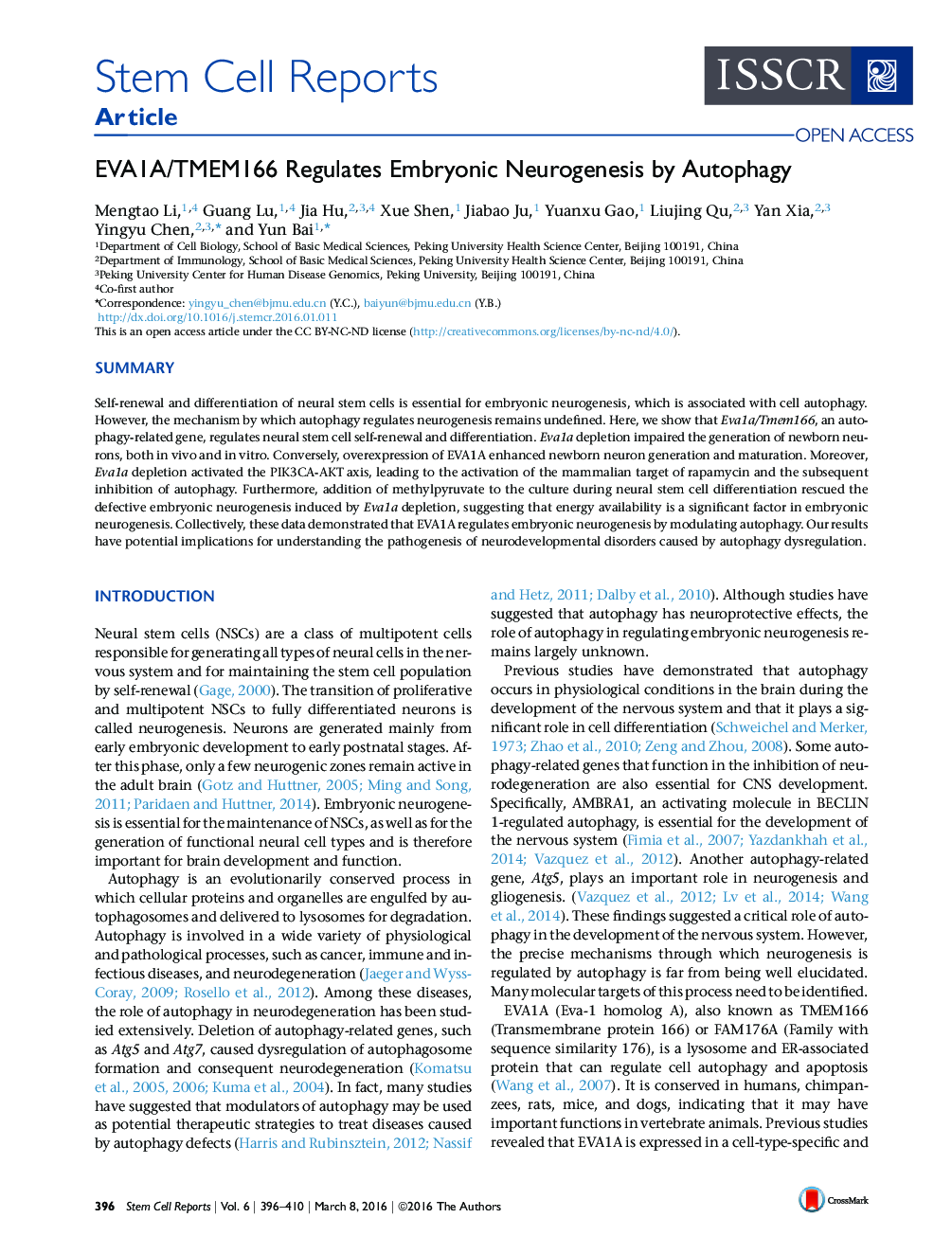| Article ID | Journal | Published Year | Pages | File Type |
|---|---|---|---|---|
| 2093313 | Stem Cell Reports | 2016 | 15 Pages |
•EVA1A is elevated during embryonic neurogenesis with enhanced autophagy activation•EVA1A deletion results in defective self-renewal and differentiation of NSCs•EVA1A modulates autophagy through the PIK3CA/AKT-mTOR pathway•Methylpyruvate, perifosine, and rapamycine restore neurogenesis in Eva1a−/− NSCs
SummarySelf-renewal and differentiation of neural stem cells is essential for embryonic neurogenesis, which is associated with cell autophagy. However, the mechanism by which autophagy regulates neurogenesis remains undefined. Here, we show that Eva1a/Tmem166, an autophagy-related gene, regulates neural stem cell self-renewal and differentiation. Eva1a depletion impaired the generation of newborn neurons, both in vivo and in vitro. Conversely, overexpression of EVA1A enhanced newborn neuron generation and maturation. Moreover, Eva1a depletion activated the PIK3CA-AKT axis, leading to the activation of the mammalian target of rapamycin and the subsequent inhibition of autophagy. Furthermore, addition of methylpyruvate to the culture during neural stem cell differentiation rescued the defective embryonic neurogenesis induced by Eva1a depletion, suggesting that energy availability is a significant factor in embryonic neurogenesis. Collectively, these data demonstrated that EVA1A regulates embryonic neurogenesis by modulating autophagy. Our results have potential implications for understanding the pathogenesis of neurodevelopmental disorders caused by autophagy dysregulation.
Graphical AbstractFigure optionsDownload full-size imageDownload as PowerPoint slide
